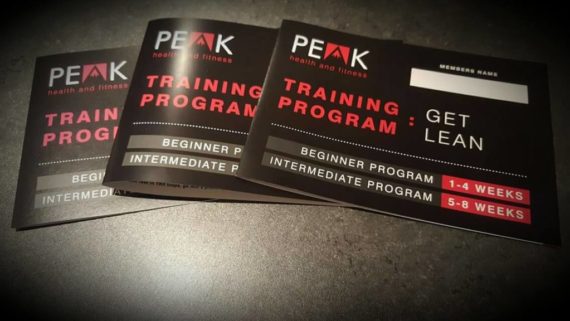So that time of year is fast approaching, when many a New Year’s Resolution is made to very shortly be broken. Why is it that diets are so hard to stick to? Why do many of us give up at the first hurdle? And, why is it so hard to find the time to keep going to the gym?
Unfortunately, there is not a single answer to these questions, but in our experience a number of factors often contribute.
DIET – even saying the word can send shudders down people’s spines. There is always one diet or another making the news, whether it is the Atkins, Paleo, Juicing or Alkaline Diet. With all the weighing, measuring, this off limits, that off limits, it is often hard to keep up with what you can and can’t have and then once you “fall off the wagon” it can be hard to get back on. For us at Peak, we don’t believe in eliminating whole food groups from your diet (unless you have an allergy or intolerance). Instead, everything in moderation means you are less likely beat yourself up over having a treat or two. How often do you hear about someone losing a stone in a month just by juicing? And then, when they start eating “normally” again, the weight goes back on and more. Losing weight is the easy part, keeping it off long term is harder.
We believe firmly in the saying “food is fuel” and it is important to fuel your body with good, wholesome nutrients. That means clean eating – eating fresh fruit and vegetables, lean meats and fish. Giving your body the right fuel to ensure you are getting all the nutrients you need. That means having a good combination of fats, Omega 3, calcium, protein and carbohydrates (yes, they are not the enemy they are perceived to be and are important for energy, especially if you are an active person), as well as vitamins and minerals – all of this comes from eating good, clean and unprocessed food. Eating well and regularly will help you feel fuller for longer and be less likely to binge on sugary, processed foods. But, if you make eating well part of your long term lifestyle plans, rather than a short term goal, it will eventually become second nature – and if you want to have a treat, then why not!
GIVING UP – come January, the gyms will be full of people embarking on their new fitness regime. Often this will involve coming to the gym 6 days per week (and probably not consuming enough calories, as they will still be detoxing from the festive period!). When you start exercising for the first time, or if you have not exercised for a lengthy period of time, your body can be surprised by this. When we are working body parts that we have not worked before, they can often react with some tenderness to say the least (a case of the DOMS – Delayed Onset Muscle Soreness). Undoubtedly, having the DOMS is enough to put anyone of going back to gym and doing it again (unless of course you get off on having the DOMS – a sign of a good workout some might say!).

More than that though, people often give up by the end of January because unless you are a professional athlete, or avid gym goer, 6 days per week is simply not sustainable. Work and family commitments mean that going to the gym eventually moves further down your list of priorities. But, it doesn’t have to be like that. Having a realistic and attainable goal in mind means that you are more likely to achieve it, compared with going all guns blazing from the off. We would suggest if you intend to make fitness part of your lifestyle in the New Year, or have a goal you want to work towards, that you start off with 2-3 days per week. That way, if you can go to the gym 4 times each week it’s a bonus and if not, don’t beat yourself up over it – any exercise is better than none. Also, it is important that your body has rest days in between workouts.
We look forward to welcoming you into our Peak Family in the New Year and hope that by making sensible and sustainable diet and exercise choices, you can make fitness part of your lifestyle in the long term and not just a passing phase. We love nothing better than to encourage those who are part of the Peak Family and support them to reach their goals.







